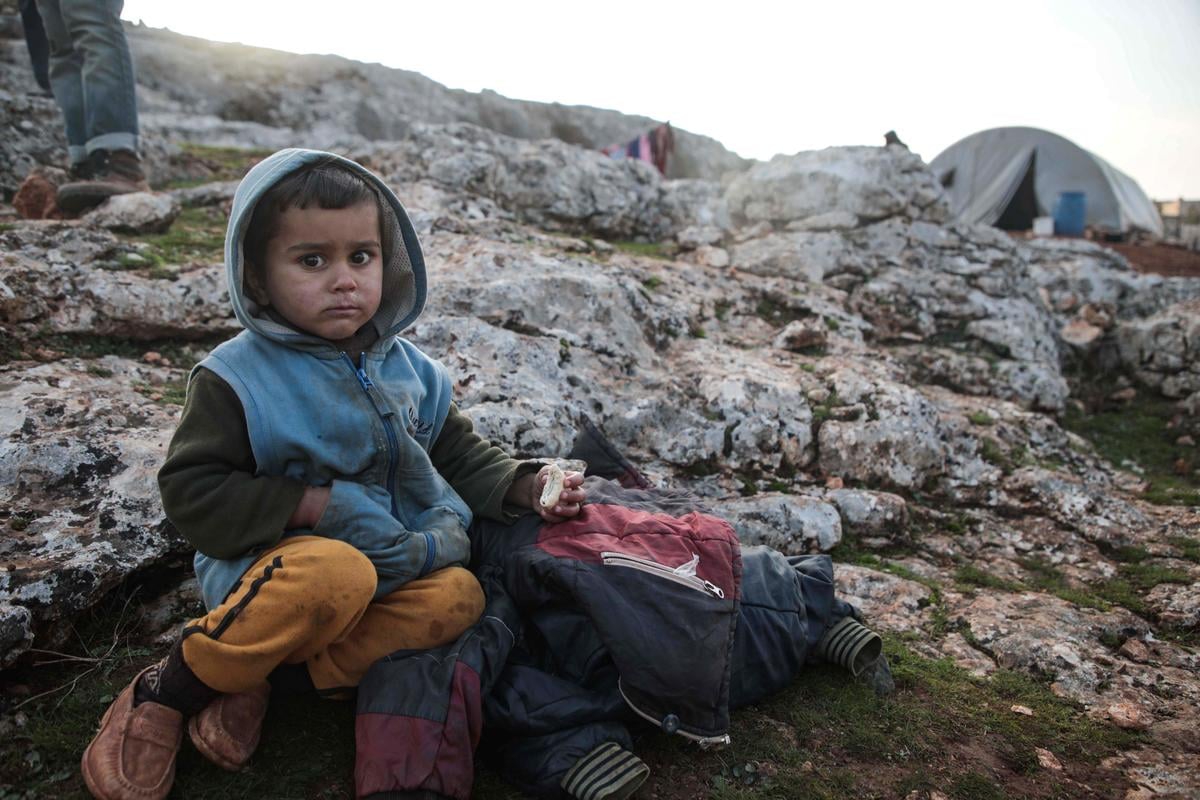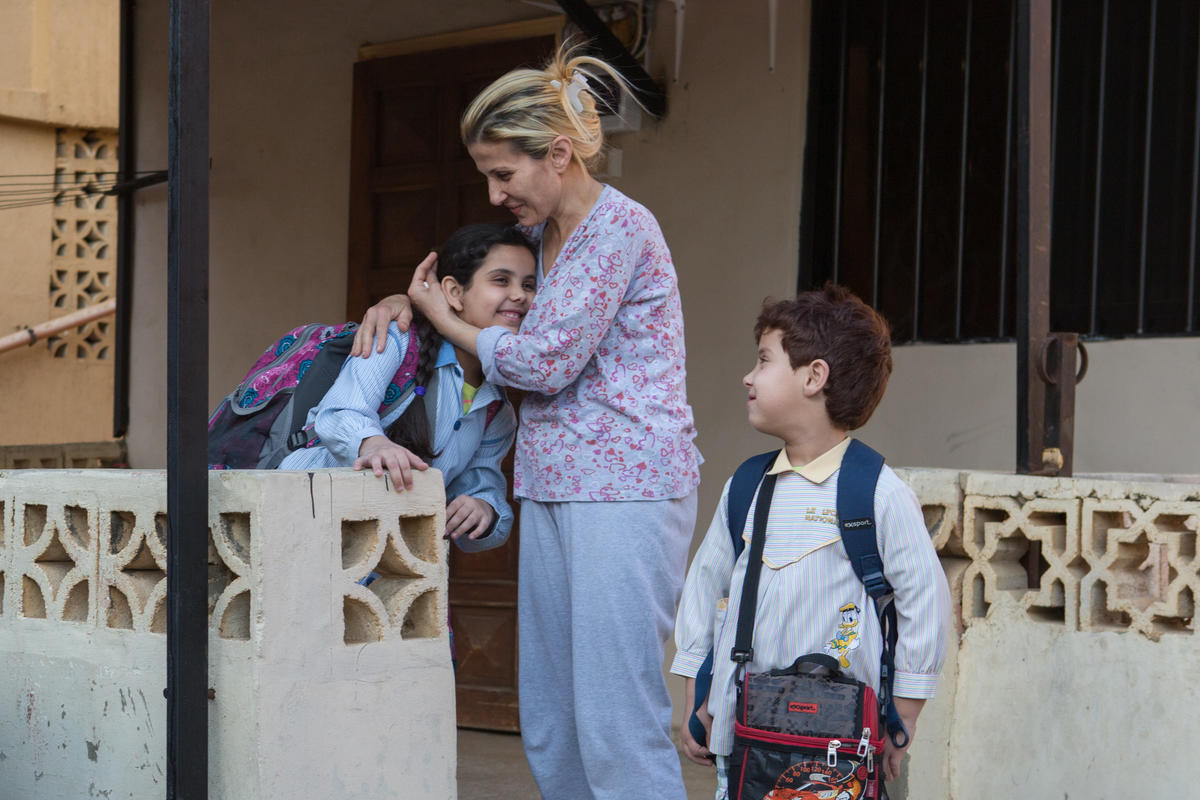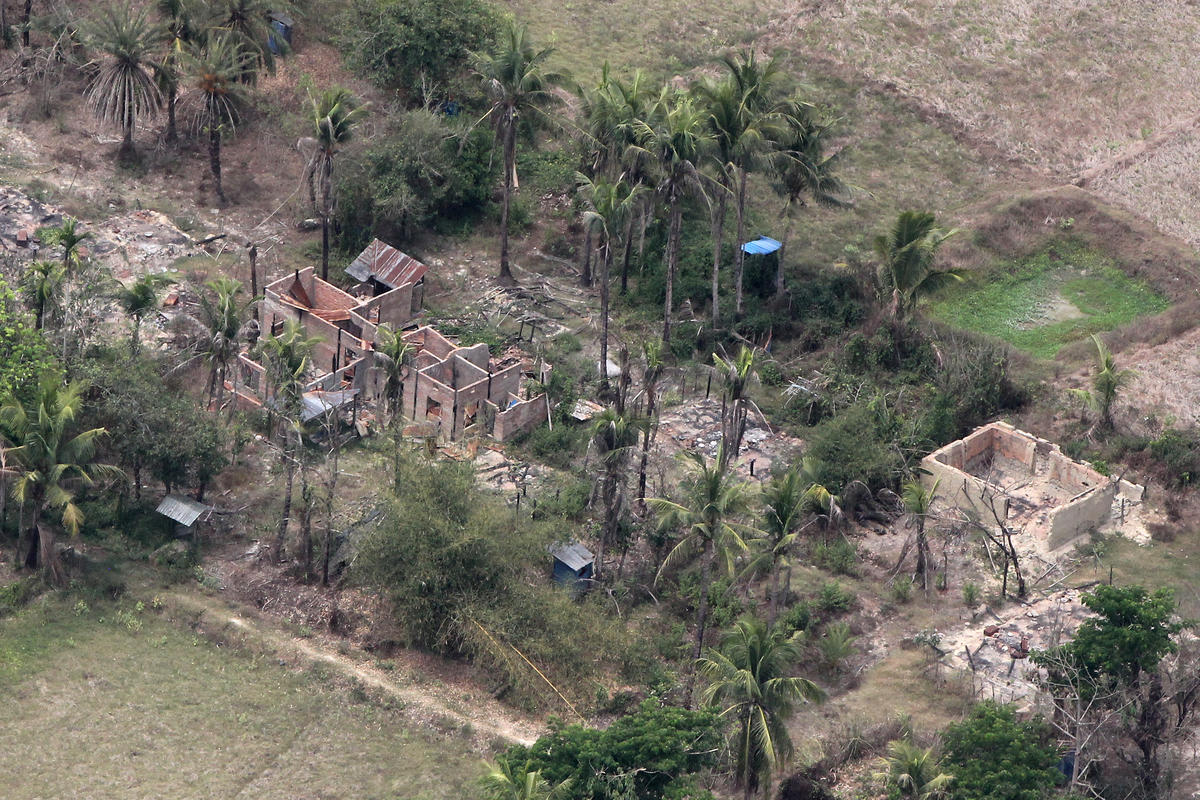Top UN refugee official calls on states to practise what they preach
Top UN refugee official calls on states to practise what they preach

GENEVA, Oct 1 (UNHCR) - The UN refugee agency's top legal official told governments today in Geneva that too many of them do not "practise what they preach" when it comes to protecting refugees in accordance with international law and urged them to live up to their own call for more "effective protection".
In her address to UNHCR's governing body, Executive Committee (ExCom), the agency's Director of International Protection, Erika Feller, cited a long list of problems to back up her conclusion that states, including some of the 64 that sit on ExCom, were not living up to their obligations despite regularly making "right-minded statements about refugee protection".
"UNHCR is concerned by the widening gulf between the discourse and commitments made, including in this Committee, and the actual practice of many states," she said. "Harsh realities facing asylum seekers around the globe are not exceptional, but rather too commonplace."
Feller reminded delegates that a December 2001 ministerial-level meeting of states that had signed the 1951 Refugee Convention called for protection to be made "more effective". In the same Ministerial Declaration, states pledged their "commitment to implement our obligation ... fully and effectively". The Ministerial meeting and the wide-ranging Global Consultations process, of which it was a part, led to a landmark document called the Agenda for Protection that was adopted by ExCom a year ago.
Feller briefly outlined the goals set by the Agenda for Protection: "Better implementation of the protection regime; better security for refugees; better protection for women and children in refugee communities; greater burden-sharing with refugee-hosting states; improved management of the asylum/migration nexus; and more reliable and timely durable solutions."
She then gave what she termed a "reality check".
Forced deportations of asylum seekers and refugees are "not exceptional," she said, and refoulement (the technical term for the illegal forced return of a refugee to his or her country of origin) is often the result.
"UNHCR is being denied access to persons of direct concern," she continued. "Refugees continue to confront serious security problems, including sexual and gender-based violence. Fear of terrorism and tightened security controls have negatively impacted refugee access to territory, to asylum procedures and to the solution of resettlement."
She noted how efforts to curb illegal migration have spawned restrictive legislation, multiplying obstacles to accessing asylum procedures and denying due process to detainees.
"Refugees have been rounded up, interned or detained in ways inconsistent both with the prevailing standards, as well as State rhetoric," Feller said. "We see compulsion to sign voluntary repatriation forms; we witness compelled return to situations of statelessness, internal displacement, forced labour or other human rights breaches."
She also pointed to what she termed an "abdication of responsibilities" on the part of some states to manage their own asylum systems, including the all-important management of security issues in refugee camps.
"The civilian and humanitarian character of asylum is compromised and, at the level of the individual refugee, women and children continue to account for the largest portion of the victims," Feller said. "Field reports all too often document cases of abuse, such as the recent one of a refugee woman who went to the local police to lodge a rape accusation, only in turn to be raped by the very security officials from whom she had sought protection and redress."
Feller then urged states to work towards providing truly "effective" protection. She reminded them that the Agenda for Protection had essentially laid down the broad policy lines, and a meeting of experts in Lisbon in December 2002 had laid down a number of suggested legal benchmarks for determining what constituted "effective protection".
While the Agenda for Protection had led to a number of promising initiatives, including the High Commissioner's Convention Plus initiative, Feller noted that "it can only be through implementation and in observance that international standards are transformed from rhetoric into reality." Instead, states were devising "too many artificial constructs ... to elude responsibility for supporting and accepting refugees."
In her conclusion, Feller noted that the stated priority of UN Secretary-General Kofi Annan to hold the line against what he has deemed widespread erosion of hitherto broadly accepted norms of behaviour. "The major goal of the Global Consultations, said Feller, "was precisely to try and arrest further erosion of the international protection regime."
She acknowledged that governments have to grapple with a number of major difficulties, including mixed movements of economic migrants and refugees, asylum fatigue, security concerns and insufficient resources.
"All of these are serious challenges," she said, "and it was agreed, through the Agenda for Protection, that specific initiatives are called for to address them. It remains our position that these challenges do not justify blatant cases of refoulement, denial of any identity to refugees before the law, mandatory and arbitrary detention of all asylum seekers, denial of access to UNHCR, maintenance of obstacles to repatriation, or not prosecuting cases of rape of refugee women."








